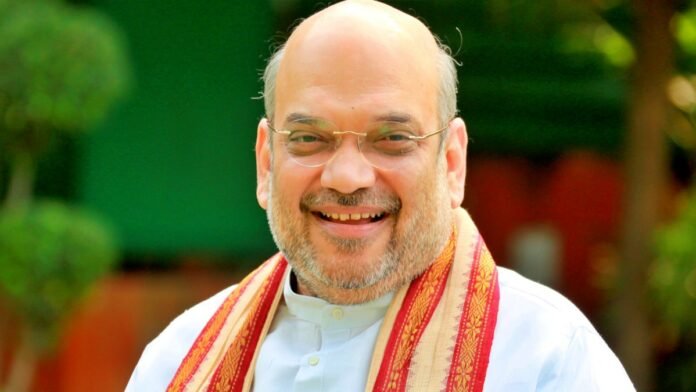
Key Points:
- Amit Shah has become India’s longest-serving Union Home Minister with a tenure of 6 years and 65 days (2,258 days), surpassing BJP veteran LK Advani’s record of 2,256 days.
- Shah’s new milestone coincides with the sixth anniversary of the abrogation of Article 370, a move he announced in Parliament on August 5, 2019.
- Prime Minister Narendra Modi lauded Shah’s achievement at the NDA Parliamentary meeting, hailing his leadership and historic decisions.
- Shah’s tenure is marked by decisive actions in national security, reduction of Naxalite violence, implementation of the Citizenship Amendment Act (CAA), and key peace initiatives in the North East.
- Before his central role, Shah was BJP national president and Gujarat’s Home Minister, known for his organizational and electoral strategy skills.
New Delhi: Amit Shah has written a new chapter in Indian political history by becoming the country’s longest-serving Union Home Minister, having held office for 6 years and 65 days. This record surpasses that of veteran leader LK Advani, who served for 2,256 days between March 19, 1998 and May 22, 2004. The milestone is especially significant as it coincides with August 5, the anniversary of Shah’s historic announcement abrogating Article 370 and ending Jammu & Kashmir’s special status.
A Tenure Marked by Historic Decisions
Shah assumed charge as Home Minister on May 30, 2019, and was reappointed after the 2024 elections serving without interruption except for a brief government transition in June 2024. His tenure is marked by several important decisions:
- Abrogation of Article 370: Shah steered the path to integrate Jammu & Kashmir more closely with the Indian Union, leading to a significant reduction in violence and law-and-order issues in the region.
- Crackdown on Terrorism and Naxalism: There has been a sharp drop in Naxalite activity and extremist incidents, especially in the North East and Jammu & Kashmir.
- Ram Janmabhoomi Temple Progress: Under Shah, there was smooth progression in the construction of the Ram Janmabhoomi temple, fulfilling a long-standing BJP promise.
- Implementation of CAA: The phased implementation of the Citizenship Amendment Act also occurred during his stint, sparking national debate and widespread attention.
- Peace Initiatives: Several longstanding insurgencies in the North East have been addressed through peace accords and negotiations.
Praise from Prime Minister Modi and Party Leaders
Prime Minister Narendra Modi praised Amit Shah’s achievement during the NDA Parliamentary meeting, highlighting the Home Minister’s pivotal role in shaping the nation’s security and governance landscape. Shah’s term, Modi said, has been defined by bold reforms and a steadfast commitment to integrating Babasaheb Ambedkar’s constitutional vision.
From ‘Chanakya’ of BJP to National Leader
At the state and national level, Amit Shah’s reputation as the BJP’s chief strategist nicknamed the party’s ‘Chanakya’—is well established. As BJP national president (2014-19), he spearheaded electoral expansions, forged winning alliances, and implemented grassroots strategies that made the BJP India’s dominant political force. His administrative expertise as Gujarat’s Home Minister under Modi also laid the foundation for his national role.
A Legacy of Transformation
With his record-setting tenure, Shah has become an enduring figure in Indian internal security and governance. His journey from grassroots organizational worker to the country’s pre-eminent Home Minister reflects both his political acumen and his ability to navigate complex, high-stakes national challenges.
Shah continues to serve as Home Minister and as India’s first Cooperation Minister, cementing his legacy as one of the key architects of modern India’s internal security and governance framework.





















































